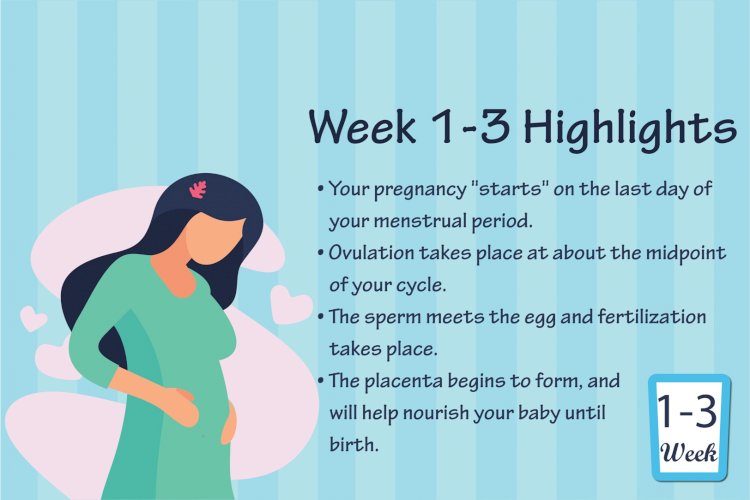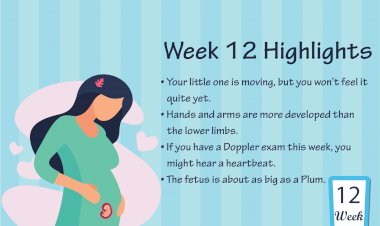Pregnancy Week - 1
Though it sounds impossible, you are not pregnant at all in your week 1 pregnancy. Usually, doctors take the first day of your last menstrual cycle as the first day of your pregnancy, even though there isn’t any difference in your belly.

Though it sounds impossible, you are not pregnant at all in your week 1 pregnancy. Usually, doctors take the first day of your last menstrual cycle as the first day of your pregnancy, even though there isn’t any difference in your belly. As it is so tough to pinpoint the right conception date, women use the first day of their period. Your gynecologist uses this measurement to calculate your pregnancy due date. You don’t actually conceive the baby till the second or third week, as per your unique menstrual cycle.
How big is your first-week baby?
Basically, the child is 0.00inch and weighs 0.00oz. The baby is just an egg securely ensconced in your ovary follicle. But, this one egg is dominant and it usually has higher blood supply and leads to the production of estrogen to thicken the uterine lining.
Pregnancy Belly Week 1
There isn’t any baby bump during the first week of your pregnancy. As you will be menstruating this week, you may experience hormonal changes and feel a little bloated. You may also feel cramping and abdominal tenderness.
The symptoms are different for every woman during their menstruation, but it won’t be different from your previous cycle.
Pregnancy Symptoms Week 1
As conception hasn’t happened yet, you won’t experience any pregnancy symptom in the first week. For a lot of women, their first pregnancy symptom occurs after a month when they skip their period. But some women may experience menstrual symptoms during the first week of pregnancy. Some of these symptoms are:
- Vaginal Bleeding
- Cravings
- Bloating
- Mood swings
- Headache
- Fatigue
- Cramping as well as lower back pain
Pregnancy Ultrasound Week 1
You actually don’t require any ultrasound during the first week of your pregnancy. However, your doctor may suggest performing one, if you haven’t undergone pre-conceptional checkup. The ultrasound can easily diagnose any kind of anatomical abnormalities which may make it difficult for you to conceive like POS or fibroids.
Pregnancy Lifestyle Week 1
If you want to conceive, there are a lot of lifestyle changes one needs to adopt to enhance your chances of conceiving. Some of the habits to include in your daily life are mentioned below:
Begin with more of a healthier diet: You don’t have a particular fertility diet but if you consume healthier food, you can get pregnant quicker. You should include leafy greens, seeds, nuts, fruits, water, mercury-free fish as well as complex carbs in your diet to make your body ready for a healthy conceiving.
A few things need to be avoided: Though you aren’t technically pregnant in your first week, you need to stay away from alcohol, nicotine, excess caffeine, trans fat, pollution, and simple carbs to raises your chance of conceiving a healthy child.
Begin exercising: It is good if you start exercising, in the beginning, to make your body used to it. Exercising is an amazing way to get a healthy weight before conceiving a baby.
Get sufficient sleep: Studies suggest that women who don’t sleep well have more trouble getting pregnant.
Keep a track of your cycle: Use menstrual calendar to find out when your cycle starts and for how many days it occurs and your ovulation date.
Pregnancy Checklist Week 1
Even before getting pregnant, there are a few things which you need to do to ensure that your body is in perfect shape to conceive a child:
- Begin taking prenatal vitamins
- Keep a track of your menstrual cycle
- Give u smoking and alcohol
- Lower your caffeine intake
- Go for a pre-conceptional meeting with your physician
- Begin exercising
- Get sufficient sleep
- Consume healthy food
- Get a biological history of your partner and family











Comments (0)